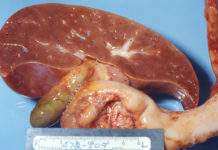
All the ointments and creams have been included under Schedule H of Drugs and Cosmetics Act
In a bid to crack down upon increasing resistance to creams and ointments that contain steroids and antibiotics, the drug controller general of India has banned over-the-counter sale of around 14 such creams.
The creams that have been banned for sale without a valid prescription are –
* Alclometasone
* Beclomethasone
* Betamethasone
* Desonide
* Desoximetasone
* Dexamethasone
* Diflorasone diacetate
* Fluocinonide
* Fluocinolone acetonide
* Halobetasol propionate
* Halometasone
* Methylprednisone
* Prednicarbate
* Triamcinolone acetonide
The move has been made in order to prevent resistance to these medical preparations. Drug resistance is an increasing concern the world over but in India, there are very real fears that it may in coming years assume epidemic proportions given India’s notoriously lax implementation of drug laws. Though conceptually resistance is something normally associated only with medicines that are infested, it does also extend to topical preparations.
It has in fact been a long standing concern of dermatologists. They have repeatedly complained to the authorities that pharmaceutical companies are selling steroid- based creams and ointments to patients who use them without medical guidance.
The revised rules will apply to skin creams that contain steroids or other prescription drugs and not for ordinary face-cleansing and moisturisers.
This leads to resistance – which means when a person who has been using that over the counter preparations casually, developed a medical condition that requires application of these ointments, the person does not respond to the medications.
In a notification issued on March 23, the Union health ministry put the 14 steroid-based creams and ointments under the Schedule H category by making amendments to certain Drugs and Cosmetics Rules, 1945. Drugs included under this schedule cannot be sold without a prescription.
The decision was taken following consultation with the Drugs Technical Advisory Board (DTAB) which had recommended a ban on the sale of such creams without prescription and had also submitted their recommendations to the Central Drugs Standards Control Organisation (CDSCO).
The revised rules will apply to skin creams that contain steroids or other prescription drugs and not for ordinary face-cleansing and moisturisers.













